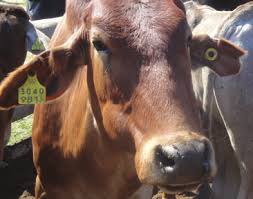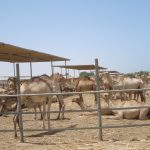Background
LITS is becoming a pre-requisite for exporting countries to implement in order to access export markets since it is an effective means to successfully protect public health, food safety and contain or respond to an outbreak of an infectious animal disease. It is also a useful tool in breeding program and curbing cattle rustling. The system requires two basic components: an identification system (for example brands, marks or a device) and a system that tracks an animal, or group of animals, along the value chain to the final destination. It is imperative that the IGAD region strengthens efforts of disease prevention and control and finds ways of enhancing and sustaining livestock-based trade and its benefits.
IGAD/ICPALD trained national LITS focal personnel and other team members, developed regional guidelines and legal framework that guide in the implementation of LITS in the Member States (MS) through its subsequent adaption to national laws. Moreover, the technical and policy makers working in the area were supported to visit good practices and lessons from Namibia. A regional coordination mechanism at IGAD level has also been established and so far six (6) regional LITS forums have been held through coordination by IGAD/ICPALD. The 7th regional virtual LITS and AHC virtual forum was held on May 31, 2021 with the support of the FAO/SFE.
The meeting objectives were to get updates from IGAD Member States on the status of LITS implementation, achievements realized, challenges faced and solutions, to exchange good practices and lessons to help avoid duplication of efforts and improve complementarities on LITS and AHC.
The meeting participants were chief veterinary officers (CVOs), national LITS focal persons and private sectors from each Member State. The partners such as OIE, FAO and AU-IBAR also participated. The meeting was officially opened by Dr. Obadiah Njagi, CVO, Kenya. Dr. David Phiri, FAOSFE Coordinator and Dr. S. J. Muchina Munyua, ICPALD Director also made informative remarks. The participants after hearing the status and discussing the various issues and challenges recommended the following.
Recommendations
- For harmonization of LITS in IGAD MSs, countries should finalize or initiate development of legal frameworks at national level aligned to IGAD guidelines and model legal framework.
- MS should advocate for integration of LITS activities in national programs to attract funding from national treasuries and work closely with relevant partners working in the areas.
- MS and IGAD should lobby and advocate for enactment of, or fast tracking of national legal frameworks/proclamations to legalize implementation of LITS activities and expedite enforcement.
- MSs should undertake awareness creation among mainstream stakeholders at national levels targeting regulatory authorities and private sector (farmers, pastoralists and traders) on the importance of LITS in livestock breeding, disease management, insurance, trade among others. The MS can multiply and directly use or adapt the existing LITS awareness materials published by IGAD and AU-IBAR.
- MS should support capacity building (training) on LITS at national levels for technical experts as well as end users. They can roll out the training provided by IGAD/AU-IBAR to the national LITS focal point and team.
- MS should design LITS devices at country levels that adopt ISO coding while ensuring interoperability (communication) with livestock movement at national and regional levels.
- MS with the support of IGAD and other partners should develop relevant infrastructure-database, laptops, servers, crushes etc, that will support implementation of, or adoption of LITS at regional and national levels.
- MS should create an enabling policy and regulatory frameworks that can incentivize the private sector to invest in LITS through PPP model to become major actors.
- MS with the support of IGAD and other partners should develop bankable proposals to raise financial resources from development partners and private sectors to facilitate adoption or implementation of LITS activities.






